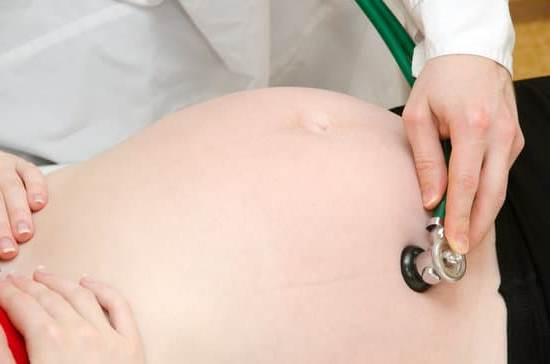There are many hormones in the human body, but estrogen may be the most important when it comes to fertility. This hormone is responsible for the development and function of female reproductive organs, including the ovaries, uterus, and vagina. It also helps to regulate the menstrual cycle.
A woman’s estrogen levels rise and fall throughout her menstrual cycle. The highest levels of estrogen are seen just before ovulation, which is when the ovary releases an egg. If the egg is not fertilized, the estrogen levels drop and the woman will have her period.
If a woman has high estrogen levels, it can mean that she is not ovulating regularly or that she is not ovulating at all. This can make it difficult for her to get pregnant.
There are several things that can cause high estrogen levels in women. Some of the most common include:
-PCOS (polycystic ovarian syndrome)
-endometriosis
-thyroid problems
-obesity
-early menopause
If you are having trouble getting pregnant, your doctor may order a blood test to measure your estrogen levels. If they are high, you may need to see a specialist to find out the cause and get treatment.
Test To Determine Fertility
There are a few basic tests that couples can take to determine their fertility. One of the simplest is the home pregnancy test. This measures the level of the hormone hCG in the urine. A woman is most likely to be pregnant if her hCG level is greater than 25 mlU/ml. Pregnancy tests are available over the counter and can be easily used in the privacy of the home.
Another common test for fertility is the sperm count. This measures the number of sperm in a man’s ejaculate. A normal sperm count is greater than 20 million sperm per milliliter. Men can have their sperm count tested at a laboratory or at home using a home sperm count kit.
A third common test for fertility is the progesterone level. This measures the level of progesterone in a woman’s blood. A woman is most likely to be fertile if her progesterone level is greater than 10 ng/ml. Progesterone levels can be measured with a home test kit or at a laboratory.
If a couple suspects that they may have a fertility problem, they should speak with their health care provider. The health care provider may order additional tests to help determine the cause of the fertility problem.
Melatonin And Fertility
There is a lot of research on the effects of melatonin on fertility. Melatonin is a hormone produced in the brain by the pineal gland. It is released mostly at night and helps to regulate the body’s circadian rhythm. Melatonin is also a powerful antioxidant.
Studies on animals have shown that melatonin can help to improve fertility. It seems to do this by protecting the eggs and sperm from damage, and by helping to regulate the reproductive hormones.
Studies on humans have also shown that melatonin can improve fertility. One study found that women who took melatonin supplements for three months had a higher rate of conception than women who did not take melatonin supplements.
There are several possible ways that melatonin could improve fertility. It may help to protect the eggs and sperm from damage, to regulate the reproductive hormones, and to improve the quality of the uterine lining.
Melatonin is available in supplement form. The dose that is recommended for improving fertility is 3-6 mg per day.
Advanced Fertility Center Of Chicago Crystal Lake
Office
We are excited to announce the opening of our new office in Crystal Lake, Illinois! This location will provide our patients in the northern suburbs of Chicago with convenient access to our world-class fertility services.
Our new office is located in the heart of Crystal Lake at:
Advanced Fertility Center of Chicago
Crystal Lake Office
600 N. McHenry Ave.
Crystal Lake, IL 60014
We offer a full range of fertility services at our Crystal Lake office, including:
IVF
IUI
PGD/PGS
Donor Egg IVF
Embryo Adoption
Fertility Preservation
We are committed to providing our patients with the highest quality fertility services possible, and we look forward to helping you achieve your dreams of becoming parents.
If you would like more information about our fertility services or would like to schedule a consultation, please call us at (815) 477-9595 or visit our website at www.advancedfertility.com.
Fertility Pregnancy
and Infertility
The three concepts of fertility, pregnancy and infertility are often intertwined. People often use these words interchangeably, but they have distinct meanings.
Fertility is the ability to conceive a child. Pregnancy is the state of carrying a developing baby inside the uterus. Infertility is the inability to conceive a child after a year of unprotected sex.
Fertility, pregnancy and infertility are all natural processes. However, infertility is a growing problem in the United States. According to the Centers for Disease Control and Prevention (CDC), about 12 percent of women of reproductive age in the United States have difficulty getting pregnant or staying pregnant.
There are many reasons why someone might have difficulty getting pregnant. Some people may have problems with their reproductive organs. Others may have problems with their hormones. Some people may have difficulty getting pregnant because they are not having regular sex.
If you are having difficulty getting pregnant, you should see a doctor. The doctor can help you figure out the cause of your infertility and recommend treatment. Treatment for infertility depends on the cause of the problem. Some common treatments include medications, surgery and assisted reproductive technologies (ART).
If you are pregnant, you should see a doctor. The doctor will monitor your pregnancy and help you prepare for delivery. If you have any problems during your pregnancy, the doctor will help you address them.
If you are having trouble getting pregnant or are pregnant, it is important to remember that you are not alone. There are many people who can help you, including your doctor and a fertility specialist.

Welcome to my fertility blog. This is a space where I will be sharing my experiences as I navigate through the world of fertility treatments, as well as provide information and resources about fertility and pregnancy.





